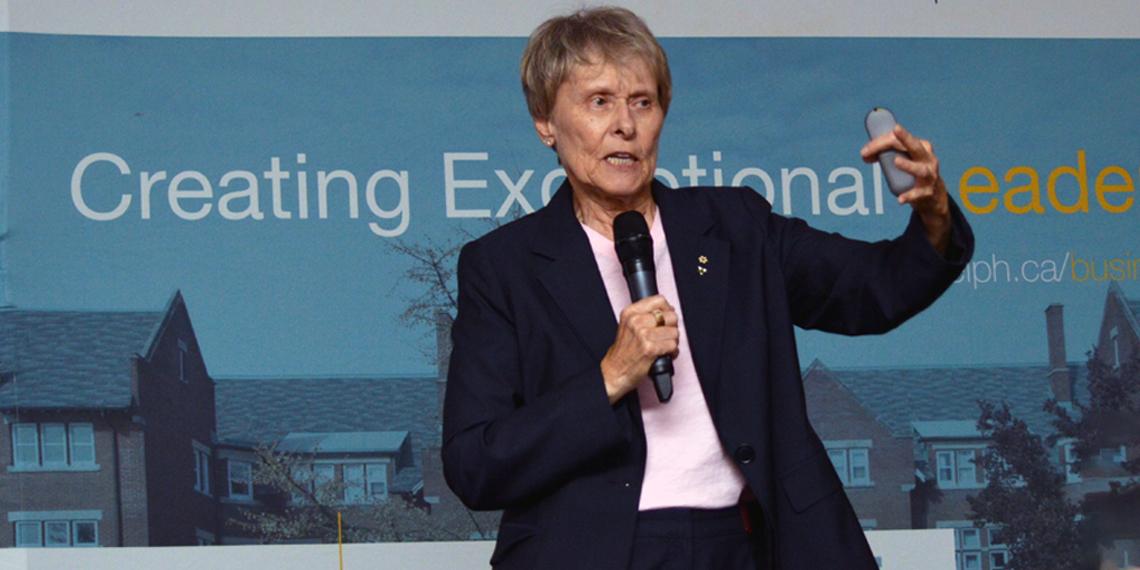Canada’s first female astronaut provides lessons in leadership to MA students

One of Canada’s most notable leaders addressed MA Leadership students last week, giving her perspective on leadership as an ever-evolving quality. Dr. Roberta Bondar, who is, among many other accomplishments, Canada’s first woman astronaut and the world’s first neurologist in space, spoke about her life experience and gave students a glimpse of how she continued to shape herself as a leader, while navigating and persevering through high profile life events.
Bondar’s address was part of the Innovators: Leaders Pushing Boundaries speaker series offered by Executive Programs during its MA Leadership residential week. The event also recognized academic excellence of students Barbara Leavitt and Kimberley Kelly, who were this year’s Dean’s List Award recipients. Leavitt was also named Valedictorian of her class.
Throughout her presentation, Bondar emphasized that leaders need to make connections, seize opportunities and engage with others. She also reminded the audience that it is important to continue growing and evolving their life perspectives, as well as maintaining their sense of curiosity.
“You need a new perspective every time you go to bed at night,” said Bondar. “You should see things differently. It’s not about you this time, it’s the potential of being another you.”
This new perspective was incredibly important following Bondar’s time in space, when she had to change her focus and elevate her accomplishments in a different way. That’s when she decided to connect people with the natural environment through her photography from across Canada. Inspired by what she saw from space, Bondar travelled to all of Canada’s national parks to take photos.
“Coming back from space it was all about moving forward and what I was going to do with that,” she said. “I took photos in national parks across Canada. I wanted to figure out how to get people to love [nature] too.”
Since then, Bondar started the Roberta Bondar Foundation, which aims to inspire people to see their environment in a positive light, to become more attuned to its characteristics and factors that influence change, and to encourage them to seek a career in any of the sciences. Through this foundation, she puts her leadership philosophy to work to create a positive change in her country and the sciences.
“We all have to connect. We have to engage,” she added. “We all have that need to be curious and be supported.”